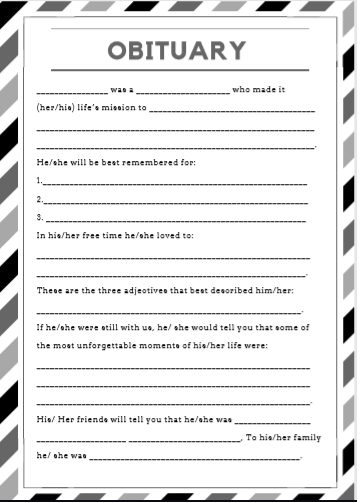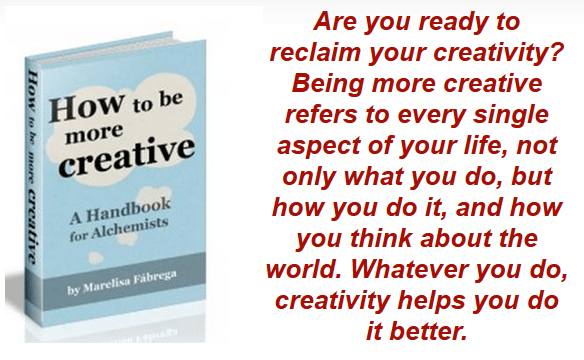
Why should you write your own obituary? Because it can give you a second chance at life.
Dr. Alfred Nobel–a Swedish engineer and inventor–was having breakfast one morning as he perused the newspaper. He turned the page and discovered, to his shock, that they had printed his obituary. It turns out that his brother had died, and the newspaper had published Alfred’s obituary by mistake.
The obituary read, “The merchant of death is dead”. This was in reference to the fact that Nobel was the inventor of dynamite. Although Nobel had created dynamite for the construction industry, it was being used as a weapon of war.
The rest of Nobel’s obituary read as follows:
“Dr. Alfred Nobel, who became rich by finding ways to kill more people faster than ever before, died yesterday.”
Needless to say, Nobel was taken aback by the way in which he would be remembered after his death.
It’s believed that it was due to this shock that Nobel decided to set aside the bulk of his estate in order to establish the Nobel Foundation. This foundation annually bestows international awards in recognition of cultural and scientific advances.
Today, Nobel is not remembered as the merchant of death. Instead, he’s remembered as the creator of the Nobel Prizes, and as a great humanitarian. Having read his obituary while he was still alive gave him the opportunity to change his legacy.
Although it sounds a bit macabre, writing your own obituary—or asking a friend or a family member to do it for you—can be an excellent wake-up call that can help you make important changes in your life. It can give you a second chance at life.
There’s more on this below.
The Late Dr. Crane
 Yesterday I was watching a re-run of one of my favorite television shows: “Frasier”. It stars Kelsey Grammer as Seattle radio psychiatrist Dr. Frasier Crane.
Yesterday I was watching a re-run of one of my favorite television shows: “Frasier”. It stars Kelsey Grammer as Seattle radio psychiatrist Dr. Frasier Crane.
One day, Frasier hurts his nose in a minor car accident and goes to the hospital to get it looked at. However, he gets tired of waiting and leaves before he’s treated.
When Frasier’s turn comes and the nurse calls out his name, another man pretends to be Frasier so he can cut to the front of the line. This man suddenly dies of a heart attack in the hospital, and the evening news reports that Frasier Crane had died.
The next day, Frasier has an experience very similar to the one that Alfred Nobel went through: the newspaper mistakenly published his obituary. This makes Frasier reflect on his life and everything that he has yet to achieve.
Here’s the exchange that took place between Frasier and his producer, Roz Doyle, when they were talking about Frasier’s obituary:
- Roz: Well, there’s something for your scrapbook, huh? Your own obituary.
- Frasier: Yes, well. You know, frankly, still it’s a little upsetting. . . it’s just, seeing all my life in black and white, it just all looks a little incomplete.
- Roz: What do you mean?
- Frasier: Well, I was going to do so much with my life. I was going to write a novel, run for public office, I was gonna do my own translation of Freud…
- Roz: Well, what’s stopping you? You’re not actually dead.
- Frasier: I guess you’re right. I’m not dead, am I? You know, maybe that’s a good way of looking at this actually, more of a wake-up call.
After that exchange, Frasier goes home and, as a self-actualizing exercise, he writes his obituary as he would like it to appear years later, at the time of his actual death. Here’s part of what he wrote:
“Dr. Crane came late to athletics, he became a fixture in the Seattle marathon, the America’s Cup yacht race, as well as the Kentucky Derby [as a stable owner].”
In addition, he included in his aspire-to-obituary that he had started a blog to teach children about psychiatry, that he had traveled to South America, that he had taken up rafting, and that he spoke Russian.
As he contemplates what’s missing from his life, Frasier also decides to take a risk by grabbing a bottle of wine and heading over to knock on the door of an attractive woman who lives a few doors down from him.
Write Your Obituary
Do the following: write an obituary as a true account of your life to date. As an alternative, if you want to be more objective, you can ask a friend or family member who knows you well to do it for you. When it’s ready, look over your obituary and ask yourself questions such as the following:
- If I died today, would I die happy?
- Am I satisfied with the direction in which my life is headed?
- Am I happy with the legacy that I’m creating?
- Is there anything missing from my life?
- What will I be remembered for?
- What do I need to do in order for my obituary to be “complete”?
- Do I need to reinvent myself?
- What risks do I need to take?
- Have I allowed myself to become confined to my comfort zone?
- Is there any area of my life that needs a reboot?
- What goals have I been putting off that I need to get to work on right away?
- How can I start using one-hour-a-day to change the direction of my life?
Then, write a fantasy obituary in which you write down all of the things you wish you had done with your life. Here’s a template for your fantasy obituary which you can download:

What does this exercise tell you? You’re not dead yet, so get out there and start making any changes that you need to so that you can “live up” to your fantasy obituary. Turn this into an opportunity to get a second chance at life.
Conclusion
Leopold Bloom–the protagonist in James Joyce’s novel “Ulysses”–said the following: “Read your own obituary notice; they say you live longer. Gives you second wind. New lease of life.” Live your best life by writing your obituary.





Related Posts:




 Marelisa Fabrega is a lawyer and entrepreneur. She holds a Bachelor of Science in Business Administration from Georgetown University in Washington, D.C., as well as a Juris Doctor from the Georgetown University Law Center. You can learn more about her
Marelisa Fabrega is a lawyer and entrepreneur. She holds a Bachelor of Science in Business Administration from Georgetown University in Washington, D.C., as well as a Juris Doctor from the Georgetown University Law Center. You can learn more about her 





